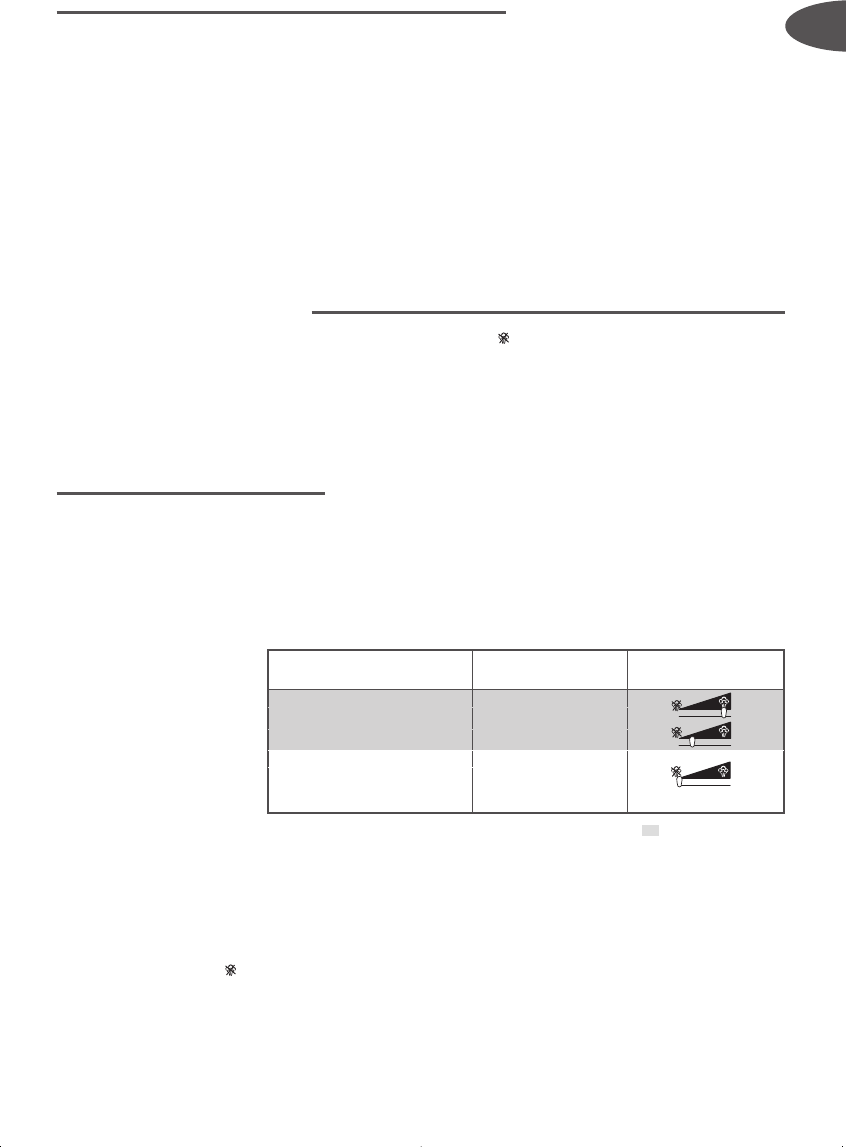
Filling the water tank
• Unplug your iron before filling it and set the steam control to (fig.1).
• Place the iron flat and fill it (
fig.2) .
Use
Adjust the temperature and the steam
• Select the temperature (see table below or iron’s heel) setting the thermostat
facing the indicator (
fig.3).
• The thermostat light comes on (
fig.4). It will go out when the soleplate is hot
enough.
• Set the steam control (
fig.5) to the desired position, consulting the table
below.
• Your iron heats up quickly: so begin by ironing fabrics that are ironed at low
temperatures first, then go on to those requiring a higher temperature.
F
ABRIC
THERMOSTAT
D
IAL
P
OSITION
S
TEAM
S
ETTING
POSITION
LINEN MAX
C
OTTON
•••
W
OOL
••
SILK
•
S
YNTHETIC
(Polyester, Acetate, Acrylic,
Nylon)
Fill the tank up to the
“MAX”. Never fill your iron
directly under water tap.
It is normal for the
indicator light to switch on
and off during ironing.
In order to avoid water
dripping from the iron
onto the linen:
- turn off the steam when
ironing silk or synthetic
fabrics.
- set it at the minimum
position for wool.
If you turn down the
thermostat, wait until the
thermostat light comes
back on before beginning
to iron again. When
ironing fabrics with mixed
fibres, set the ironing
temperature for the most
delicate fibre. For delicate
fabrics we recommend
testing the fabric first on
an inconspicious place eg
(inside the hem).
If you want to dry iron,
set the Steam control to .
Preparation
= STEAM ZONE
If you have very hard
water, mix tap water with
commercially available
demineralised water in the
following ratio :
- 50% tap water,
- 50% demineralised water.
What water to use ?
• Your appliance has been designed to function with untreated tap water.
However, Self-cleaning of the appliance should be carried out once a month.
•
NNeevveerr uussee
any of the types of water below that contain organic waste or
mineral elements and may cause spitting, brown staining or premature
ageing of your appliance: commercially available pure demineralised water,
water from tumble dryers, scented water, softened water, water from
refrigerators, water from batteries, water from air conditioners, distilled water,
rain water, boiled or filtered water, bottled water, etc.
GB
5













